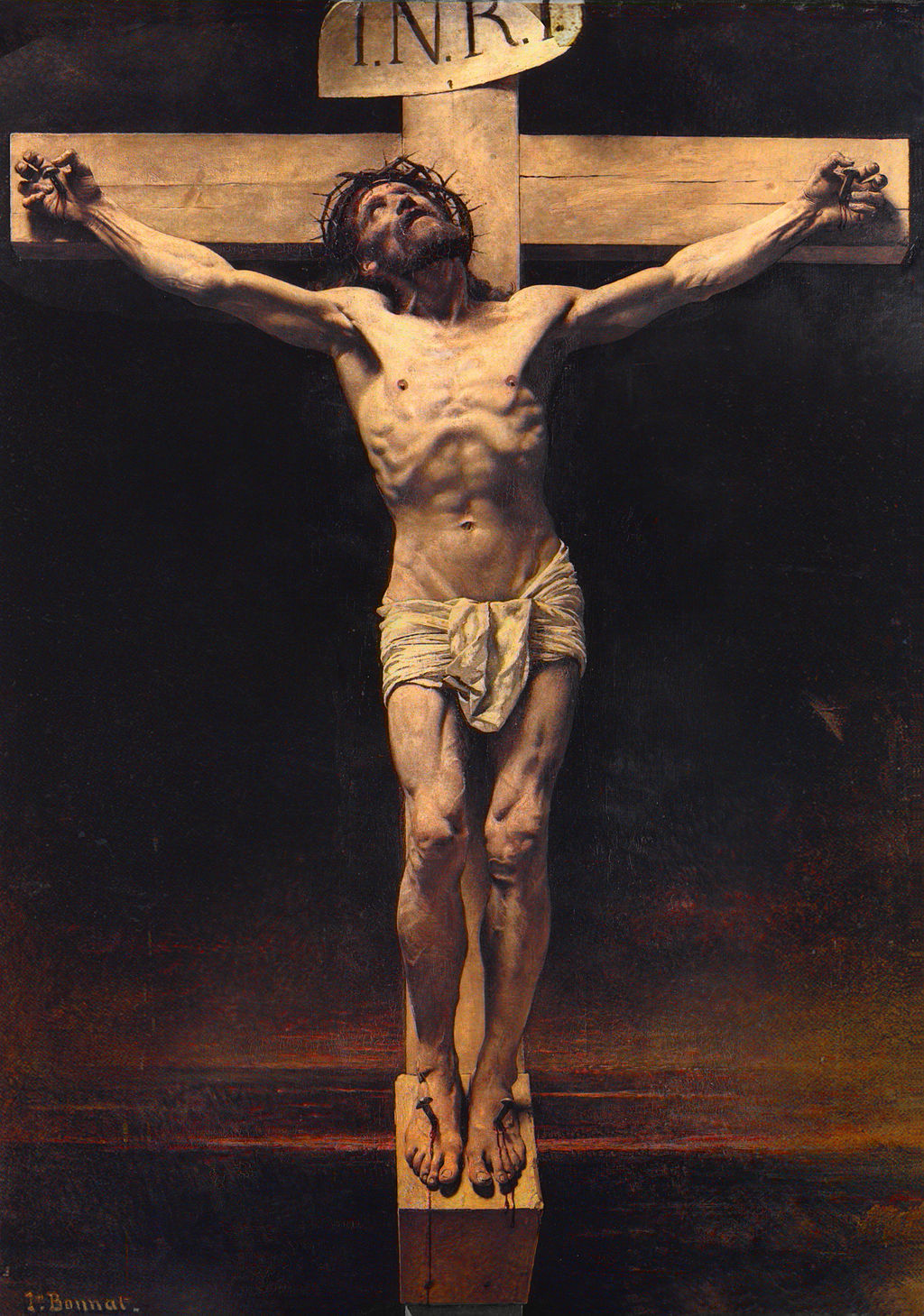
We are between the most tragic and most triumphant days of the liturgical year: the agony and the ecstasy of Christianity. This past Sunday was Passion Sunday. The normally short reading of the Gospel was replaced by the entire account of the last days of the earthly life of Jesus. We followed him from the exuberant entry into Jerusalem when he was hailed as king to his last supper with the disciples, his betrayal, the mock trials, the false testimonies, failure of justice, police brutality, horrifying execution and death. This was the passion of Jesus Christ.
The word itself – passion – conjures intense feeling. It is not necessarily a term used for our thoughts, although one can be intellectually passionate in the pursuit of some truth. When we use the word, passion, we generally apply it to something just slightly over the top, intense, driven. This describes well the feelings accompanying the reading of the Passion account. Those involved in this drama acted on passion: the crowd who chanted his praise in their spontaneous procession into the city; those who shared an intimate meal and pledged to die with him (if it came to that); the one who panicked and made a deal to set himself up; the predetermined judgments based on the lies of false witnesses; the pitiful authorities attentive only to pride and self-preservation; perverted guards too easily worked into a frenzy by their temporary power; the self-righteous leaders who gloated over their victory as one otherwise innocent man “died for the people”; and those same unworthy leaders who demand a squadron of guards to insure their Victim remained dead and buried. These, except when speaking of the fervent welcome of the crowd as Jesus entered Jerusalem, were the evil passions at work in the Passion.
Other passions were in play as well. We see the anxiety of the apostles as Jesus speaks to them during that last meal together, the initial confusion and anger of the man pressed into service to help carry the cross, the resolute strength and devotion of the youngest apostle, John, the uncontrollable weeping of the women along the road and the great sorrow of the woman who walked along beside her son. And Jesus himself was driven by his own passions. They were two: that the Will of his Father be accomplished and that his life be spent entirely for our salvation. Jesus did not only suffer his passion, but he offered his passion. The difference is immense! He came to our world to accomplish our salvation, that is, to bring about the reconciliation of God and the human family, to mend the relationship severed by sin. This he did passionately, freely, intensely, lovingly.
Next Sunday will be Easter, the day of triumph, when the Passion becomes Exultation. We really shouldn’t think of Jesus’ Resurrection as a reward for his suffering. That is short-changing the Event. That perspective is too human. His rising from a real death to new life (Resurrection) is the fulfillment of the restored relationship between God and the human race. In the Risen Jesus, we, fallen humanity, are restored to our rightful dignity as God’s children, destined to eternal life with God.
During this week between the agony of sin and the ecstasy of redemption, let’s think of our response to so gracious a gift. Are the passions I suffer and the passion I feel always directed to my relationship with a loving God in Jesus Christ my Lord?
 Sister Mary Lea Hill, a member of the Daughters of St. Paul since 1964, recently wrote a book entitled Prayer and You: Wit and Wisdom from a Crabby Mystic. She has enjoyed communicating the faith through a variety of apostolic assignments. Her skills as a story teller were honed as director of audiovisual productions when Pauline Books & Media first produced animated features in the early 80s. An editor and author for many years, Sister Mary Lea has written several books, including the best-selling Basic Catechism (co-authored with Sister Susan Helen Wallace) and she blogs at CrabbyMystic.
Sister Mary Lea Hill, a member of the Daughters of St. Paul since 1964, recently wrote a book entitled Prayer and You: Wit and Wisdom from a Crabby Mystic. She has enjoyed communicating the faith through a variety of apostolic assignments. Her skills as a story teller were honed as director of audiovisual productions when Pauline Books & Media first produced animated features in the early 80s. An editor and author for many years, Sister Mary Lea has written several books, including the best-selling Basic Catechism (co-authored with Sister Susan Helen Wallace) and she blogs at CrabbyMystic.













